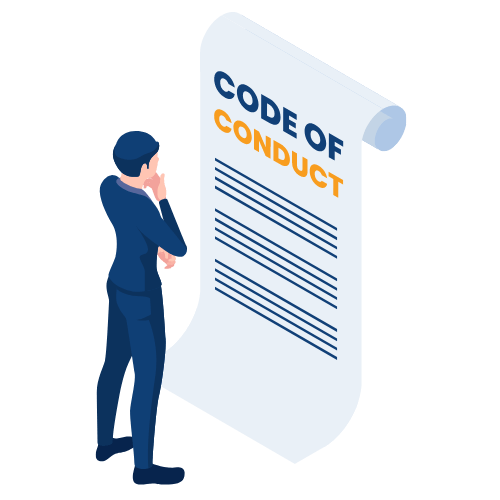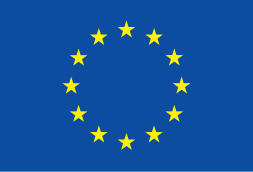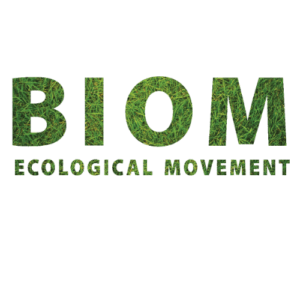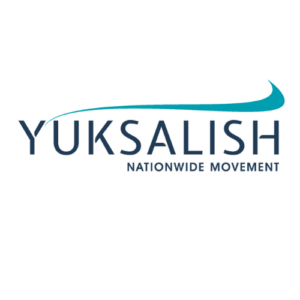


To achieve the overall goal of the project, financial support will be provided for youth actions/events/initiatives aimed at involving young people as representatives of civil society in activities aimed at promoting peacemaking, good neighborliness, and tolerance, which will be supported through a financing system (grant scheme is attached in the guidelines).
OBJECTIVES OF THE GRANT COMPETITION
Grant proposals/initiatives will contribute to the creation and functioning of cross-border dialogue platforms to improve contacts between people, combat stereotypes, strengthen trust and encourage tolerance and will correspond to one of the goals mentioned below:
The objectives of this grant competition are:
Grant Competition Overview:
Title: Grant Competition to Support Transboundary Youth Initiatives Type of Competition: Closed (only for project beneficiaries)
Participating Countries: Kyrgyzstan, Uzbekistan, Tajikistan Who Can Participate: Young People (see below) Grant Size: Minimum 500 – Maximum 1000 Euro
Initiative Duration: 2 months Competition Language: Russian or national Information Meeting: December 13, 2022, at 14:00 in Bishkek / 13:00 in Dushanbe and Tashkent
Zoom Conference Link: https://us02web.zoom.us/j/82521362856?pwd=VEh1MEdraS8xVng5M21sVkJoUGRkZz09 Conference ID: 825 2136 2856 Access code: 534254
Application Deadline: December 23, 2022, 23:59 local time Announcement of Competition Results: January 25, 2023.
FINANCIAL DISTRIBUTION
The amount of grants for financing youth initiatives within the framework of this competition is limited: minimum 500 – maximum 1000 euros (equivalent in national currency).
It is planned to finance a total of 3-7 youth initiatives in Kyrgyzstan, Uzbekistan and Tajikistan.

This guide establishes the rules for the submission, selection, and implementation of initiatives financed within this competition, in accordance with the applicable rules of programs funded by the European Union, in particular the project “Transboundary Multilateral Dialogue for Tolerance and Peace in Central Asia.”
SELECTION CRITERIA
There are three groups of selection criteria:
APPLICANTS:
The lead applicant, i.e. the young person applying;
ACTIVITY:
The type of activity for which a grant may be awarded;
EXPENSES:
Forms of financing and types of expenses that can be taken into account when determining the grant amount.
Who can apply?
To be eligible for the grant, the lead applicant must:
The following types of activities or similar initiatives can be proposed as priorities for international events in online and offline formats:
DURATION
The initial planned duration of the initiative cannot exceed 3 months.
LOCATION
Actions should take place in the border regions of Kyrgyzstan, Uzbekistan, Tajikistan, and the Fergana Valley in offline/online formats, and should be aimed at youth in the same regions.
The following types of actions are unacceptable:
Actions related only or mainly to individual sponsorship for participation in workshops, seminars, conferences, and congresses; Actions related only or mainly to individual scholarships for education or training courses; Commercial projects or non-profit projects promoting the interests of very limited target groups; Actions in support of individual political parties or religious groups; Infrastructure projects.
The following expenses are not eligible for reimbursement:
Debts and debt servicing costs (interest); Reserves to cover losses or potential future liabilities; Expenses claimed by the beneficiary(ies) and financed by another project or work program; Purchase of land or buildings, remodeling or reconstruction of buildings or offices; Foreign exchange losses; Expenses for participation in international conferences, seminars, or workshops, travel expenses, participation fees; Scholarships for education for individual persons or groups; Costs already incurred
COMMUNICATION ABOUT INITIATIVES
All grants must include communication and lighting components. Applicants must take all necessary steps to publicize the fact that the European Union has funded these initiatives. To the extent possible, activities that are wholly or partly funded by the European Union should include information and communication activities aimed at raising awareness among specific audiences or the general public about the reasons for the initiative, about EU support, and about the results and impact of this support. The project will provide advice on this issue to grant recipients.
Grants can take the form of:
Specific costs: covering all or some specific categories of eligible costs that are clearly defined in advance by referencing a unit cost.
The evaluation committee and the project beneficiary decide whether to accept proposed amounts or rates based on a preliminary budget submitted by applicants, analyzing actual data on grants awarded to applicants, or similar actions.
In case of additional unforeseen expenses, the budget revision is discussed individually with Project Managers before incurring the expenses.
Once the amounts have been assessed and approved by the project beneficiary, they will not be contested retrospectively by means of control.

a) No conflict of interest
The applicant must not be affected by any conflict of interest and must not have an equivalent relationship in this regard with other applicants or parties involved in the implementation of the initiative. Any attempt by the applicant to obtain confidential information, enter into unlawful agreements with competitors, or influence the evaluation committee or project beneficiary in the process of reviewing, clarifying, evaluating, and comparing applications will result in the rejection of his application and may result in administrative penalties.
b) Compliance with human rights, as well as environmental laws and labor standards
The applicant and his staff must respect human rights. In particular, and subject to applicable law, contract applicants must comply with environmental laws, including multilateral environmental agreements, and core labor standards, as applicable and as defined in relevant International Labor Organization conventions (such as the conventions on freedom of association and collective bargaining; the elimination of forced and compulsory labor; the abolition of child labor).
Zero Tolerance for Sexual Exploitation and Sexual Abuse:
The European Commission has a “zero tolerance” policy for all illegal acts that affect the professional reputation of the applicant. Physical abuse or punishment, threats of physical abuse, sexual abuse or exploitation, harassment, and verbal abuse, or other forms of intimidation are prohibited.
c) Anti-corruption and bribery
The Applicant must comply with all applicable anti-bribery and anti-corruption laws and regulations and codes. The project beneficiary and program authorities reserve the right to suspend or cancel sub-project funding if corrupt practices of any kind are discovered at any stage of the grant award process or during the execution of the grant contract. For the purposes of this provision, “corrupt practice” is the offering of a bribe, gift, reward, or commission to any person as an inducement or reward to do or refrain from any action in connection with the award of a contract or the performance of a contract already awarded.
d) Breach of obligations, violations, or fraud
The project beneficiary and program authorities reserve the right to suspend or cancel the procedure if it turns out that the contract award procedure was associated with a breach of obligation, violations, or fraud. If a breach of obligation, breach, or fraud is discovered after the award of the contract, the project beneficiary may refrain from awarding the contract.
e) Whistleblowing Policy
Exposure serves the purpose of shedding light on corruption as it is a tool to make such unethical behavior visible. Whistleblowers act in the public interest by reporting serious activity they see, and must be protected from retaliation in the form of harassment, dismissal, blacklisting, threats, and their statements are usually ignored. Therefore, privacy is crucial and Konrad Adenauer Stiftung (KAS) guarantees them that their identity will be protected in accordance with the data protection obligations set out in the General Data Protection Regulation (EU) No 2016/679.
APPLICATIONS
Leading applicants are invited to submit an application in the grant application form (Appendix 1) and budget (Appendix 2) attached to this guide. Leading applicants must strictly adhere to the format of the grant application form and fill in the paragraphs and pages in order. Applicants must submit applications in Russian, and in certain cases, filling out the application in the national language of partner countries is allowed, provided that a translation into Russian is provided.
Please fill out the complete application form carefully and as clearly as possible so that it can be properly evaluated. Any error related to the items listed in the checklist of the grant application form or any serious discrepancy may result in the rejection of the application. Clarifications will be requested only if the provided information is unclear and thereby hinders the customer from conducting an objective evaluation.
Handwritten applications will not be accepted.
Please note that the evaluation committee will only consider the grant application form and budget, which must be completed (budget, experience, and statement of honesty). Therefore, it is extremely important that these documents contain ALL the necessary information about the initiatives.
No additional attachments should be sent and will not be considered.
APPLICATIONS
Lead applicants are invited to submit an application in the form of a grant application (Appendix 1) and budget (Appendix 2), attached to this guide. Lead applicants must strictly adhere to the format of the grant application form and fill in the paragraphs and pages in order. Applicants must submit applications in Russian, with the exception of cases where the application may be completed in the national language of partner countries with a translation provided in Russian.
Please fill in the complete application form carefully and as clearly as possible so that it can be properly evaluated. Any errors related to the items listed in the grant application form checklist or any serious inconsistencies may result in the rejection of the application. Clarifications will only be requested if the information provided is unclear and thereby hinders the customer’s objective evaluation.
Handwritten applications will not be accepted.
Please note that the evaluation committee will only consider the grant application form and budget, which must be completed (budget, experience, and honesty statement). Therefore, it is extremely important that these documents contain ALL the necessary information about the initiatives.
No additional attachments should be sent and will not be considered.
The complete application package must be filled out in electronic form and must consist of:
Completed application form for the proposed initiative; Completed budget form for the initiative; Applicant’s identification; Applicant’s bank details.
Completed application packages must be sent before 23.12.2022, 23:59 local time. Applications submitted after this deadline will not be accepted. Completed application packages must be sent in electronic format to the following email addresses:
Kyrgyzstan: Ulan Umetov: +996 771 286 605 (tel./WA/Telegram), umetovulan01@gmail.com Elnur Shabiyev: +996 700 765 532 (tel./WA/Telegram), shabieva.elnura@gmail.com
Uzbekistan: Elena Kudinova: +998 90 974 85 55 (tel./WA/Telegram), kudinova1808@gmail.com Umida Yusupova: +998 97 429 98 89 (tel./WA/Telegram), uyusupova59@gmail.com
Tajikistan: Nargis Saidova: +992 880 08 55 00 (tel./WA/Telegram), tender@gender.tj Angela Vafina: +992 918 68 46 28 (tel./WA/Telegram), anzhela.vafina@gender.tj Applicants must ensure that their application is fully completed, as incomplete application forms will be rejected.

Applications will be reviewed and evaluated by the project partner’s evaluation panel, with the possible assistance of external experts. All applications will be evaluated according to the following stages and criteria.
If, upon review of the application, it is found that the proposed action does not meet the eligibility criteria specified in the application, the application will be rejected on that basis alone.
STEP 1: OPENING AND ADMINISTRATIVE VERIFICATION
During the opening and administrative verification, the following will be assessed:
STEP 2: APPLICATION EVALUATION
Applications that have passed the eligibility and administrative check will be further evaluated based on their quality, including the proposed budget and the applicants’ capabilities. They will be assessed using the evaluation criteria provided in the table below.
STEP 3: APPLICANT COMPLIANCE VERIFICATION
Compliance verification will be based on supporting documents requested by the project beneficiary. By default, it will only be conducted for those applications that have been pre-selected based on their evaluation and within the available budget for this call for proposals.
The declaration of the lead applicant will be re-verified with the supporting documents provided by the lead applicant. Any missing supporting document or inconsistency between the declaration of the lead applicant and the supporting documents may result in the rejection of the application on this basis alone.
The eligibility of applicants will be verified according to the criteria set out in the application.
Any rejected application will be replaced by the next-ranked application from the reserve list that fits within the available budget for this call.
The grant award criteria help to evaluate the quality of applications in line with the objectives outlined in the guidelines and award grants to initiatives that maximize the overall effectiveness of the call for proposals. They help to select applications that the project management can be confident will meet its goals and priorities. They cover the relevance of the action, its alignment with the call’s objectives, quality, expected impact, sustainability, and economic efficiency
SOLUTION CONTENT
Lead applicants will be informed in writing of the decision on their application and, if rejected, the reasons for the negative decision.
INDICATIVE SCHEDULE
ACTIVITY DATE TIME
1. Announcement of the grant competition 08.12.2022 10:00
2. Information meeting 13.12.2022 14:00 Bishkek time / 13:00 Dushanbe and Tashkent time
3. Deadline for clarifications/assistance to improve the grant application 20.12.2022 17:59
4. Deadline for applications 23.12.2022 23:59
5. Announcement of the results of the grant competition 25.01.2023 23:59
6. Comments and feedback on selected grants 30.01.2023 23:59
7. Signing of the contract 10.02.2023 17:59
8. Start of implementation of initiatives 15.02.2023 00:01
9. Completion of implementation 15.04.2023 23:59
10. Reporting period 30.04.2023 23:59
Once a grant decision has been made, the grantee will be offered a contract based on the standard grant contract. By signing the application form, applicants agree, if awarded a grant, to accept the contractual terms of the standard grant agreement. If the coordinator is an organization whose applications were positively evaluated, it signs a contribution agreement based on the contribution agreement template.





